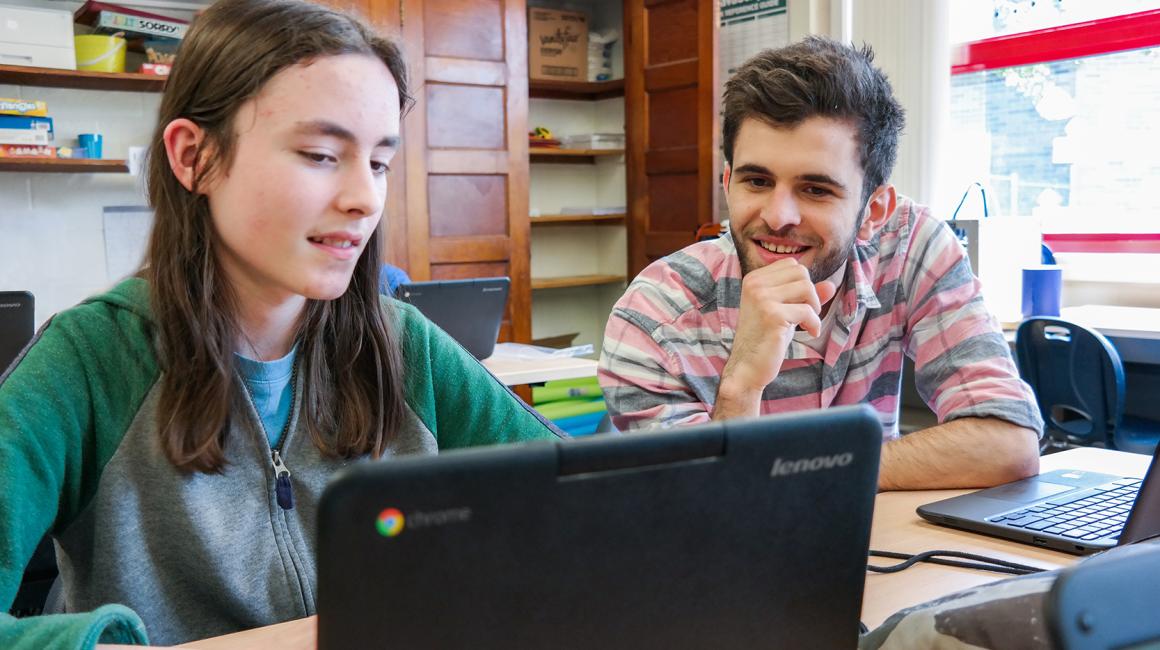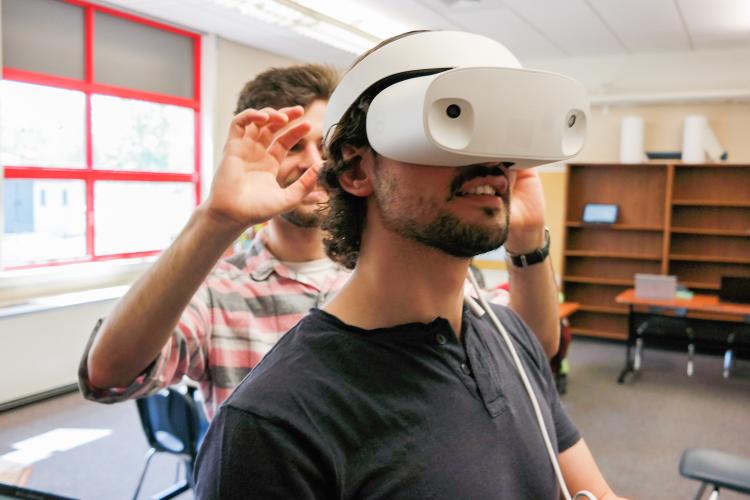
Sean Galvin often tells a story explaining why he became an educator and not an astronaut—the basic premise of which is that growing up, he knew a ton of the former but not any of the latter.
“My mother was a teacher, my aunts and uncles were teachers, there were educators basically everywhere I turned,” Galvin said. “Being an astronaut—I probably thought about doing that as a kid. But you can see how that might fade from your list of career possibilities if you didn’t know anyone who could tell you how to actually do that.”
It’s a simple but convincing argument for how exposure to real-life examples can shape your future—and one that’s at the heart of an after-school program Galvin heads up at the Jefferson Barns Community Vitality Center in Westland’s historic Norwayne neighborhood. For his students, the horizon of possibilities usually falls far short of a trip to space or even being a teacher. Here, Galvin said, many families face a long list of economic challenges. And for the young people in the neighborhood, the idea of going to college “might as well be a trip to the moon.”
Galvin, however, is hoping to bring that particular dream closer to earth, and he has some compelling people around him to help him make the case.
For the past few years, UM-Dearborn College of Engineering and Computer Science (CECS) undergraduates have become familiar faces around his STEM-focused learning lab. They’re officially here as tutors and mentors, but Galvin smiles wryly when he says their real job is simply to “be there and be helpful.”
Some days that includes helping students ages 8 to 18 with their math or science homework. But if a kid wants help shooting videos for his or her YouTube channel, or printing something weird on the lab’s 3D printer, or playing with the VR goggles, that’s just as good. Anything “productive” that keeps them engaged, Galvin said, is pretty much fair game.





